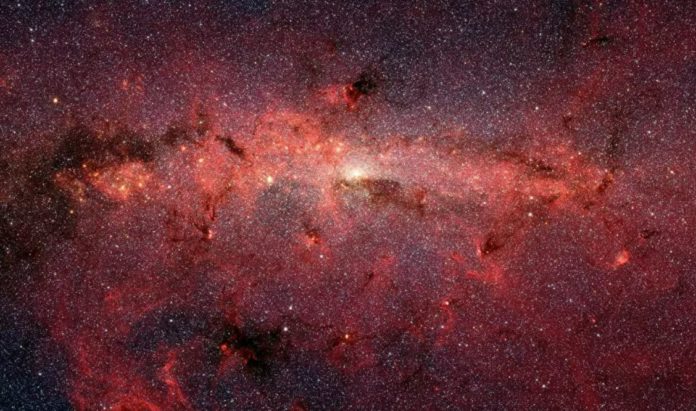It is believed that most of the mass in the universe is composed of dark matter and energy and only 5% is a baryonic matter that makes up everything around us, such as planets, stars or asteroids. According to one measurement, the baryonic matter is only half of what was expected, but where is the other half?
A team of astrophysicists has created a technique that helped find a never-before-seen cold gas cluster that lies 10 light years from Earth. This cluster is a trillion kilometers long and 10 billion kilometers wide.
- Brief Anger Hampers Blood Vessel Function Leading to Increased Risk of Heart Disease and Stroke – New Study
- New Blood Test Pinpoints Future Stroke Risk – Study Identifies Inflammatory Molecules as Key Biomarker
- Enceladus: A Potential Haven for Extraterrestrial Life in its Hidden Ocean Depths
- New Experiment: Dark Matter Is Not As ‘DARK’ As All We Think
- Scientists in Fear of This New Predator From Red Sea Eating Native Species in Mediterranean
In the study published in the Monthly Notices of the Royal Astronomical Society, astrophysicists conclude that the galaxy’s missing matter may be hidden in these clouds formed with cold gas.
“We suspect that much of the missing baryonic matter is in the form of cold gas clouds or between galaxies. This gas cannot be detected with traditional methods because it does not emit its own visible light and is too cold for radio astronomy”
explained Yuanming Wang, who is doing his PhD at the Sydney Institute of Astronomy.
Astrophysicists applied radio signals from distant galaxies that flicker to locate the cold gases.
“We have detected five bright radio sources located on a giant line in the sky. Our analysis shows that their light must have passed through the same cold group of gas”
Wang concluded.
